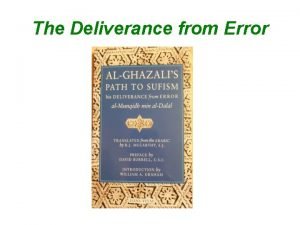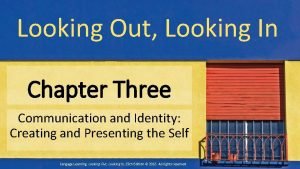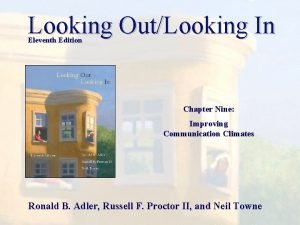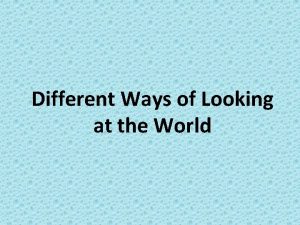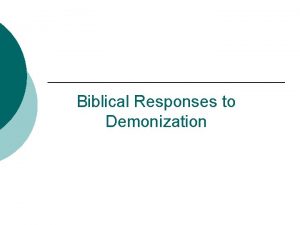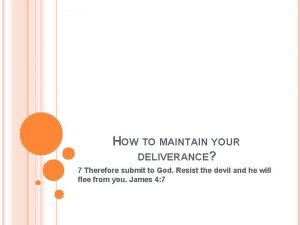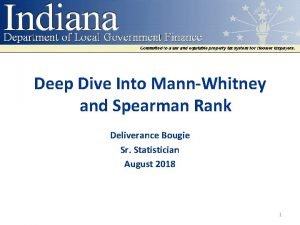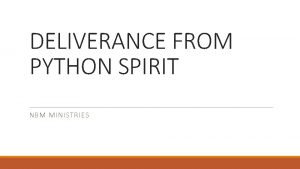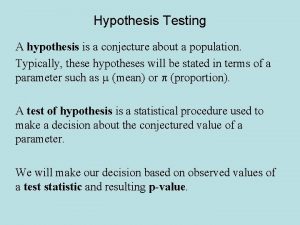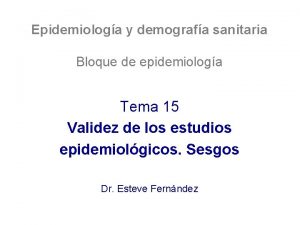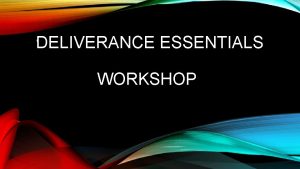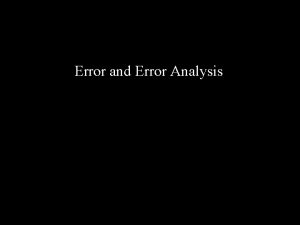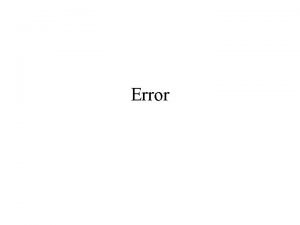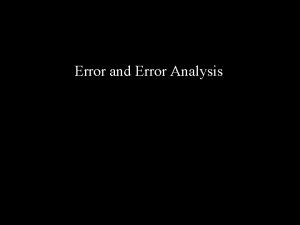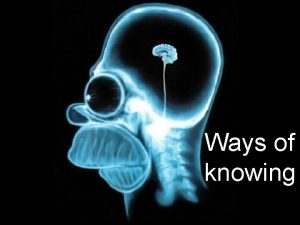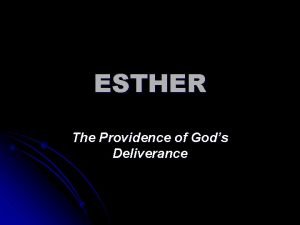The Deliverance from Error 4 ways of looking














- Slides: 14

The Deliverance from Error

4 ways of looking for the truth: You also want to hear about my daring in mounting from the lowland of servile conformism to the highland of independent investigation: and first of all what profit I derived from the science of kalam; secondly what I found loathsome among the methods of the devotees of ta‘līm, who restrict the attainment of truth to uncritical acceptance of the Imam’s pronouncements; thirdly, the methods of philosophizing which I scouted; and finally, what pleased me in the way pursued by the practice of Sufism. You also wish to know the quintessential truth disclosed to me in the tortuous course of my inquiry into the views expressed by various men: and what led me to quit teaching in Baghdad, though I had many students there: and what induced me to resume teaching in Nishapur much later. pp. 17 -18 …

Breaking away from comformism • The thirst for grasping the real meaning of things was indeed my habit and wont from my early years and in the prime of my life. It was an instinctive, natural disposition placed in my makeup by God Most High, not something due to my own choosing and contriving. As a result, the fetters of servile conformism fell away from me, and inherited beliefs lost their hold on me, when I was still quite young. For I saw that the children of Christians always grew up embracing Christianity, and the children of Jews always grew up adhering to Judaism, and the children of Muslims always grew up following the religion of Islam. I also heard the tradition related from the Apostle of God — God’s blessing and peace be upon him! — in which he said: “Every infant is born endowed with the fitra: then his parents make him Jew or Christian or Magian. ” pp. 19 -20

Certainty and doubt • So I began by saying to myself: “What I seek is knowledge of the true meaning of things. Of necessity, therefore, I must inquire into just what the true meaning of knowledge is. ” Then it became clear to me that sure and certain knowledge is that in which the thing known is made so manifest that no doubt clings to it, nor is it accompanied by the possibility of error and deception, nor can the mind even suppose such a possibility. Furthermore, safety from error must accompany the certainty to such a degree that, if someone proposed to show it to be false — for example, a man who would turn a stone into gold and a stick into a snake — his feat would not induce any doubt or denial. • … • I realized, then, that whatever I did not know in this way and was not certain of with this kind of certainty was unreliable and unsure knowledge, and that every knowledge unaccompanied by safety from error is not sure and certain knowledge. p. 20

The Categories of Those Who Seek The Truth • When God Most High, of His kindness and abundant generosity, had cured me of this sickness, I was of the view that the categories of those seeking the truth were limited to four groups: • l. The Mutakallimūn, who allege that they are men of independent judgment and reasoning. • 2. The Batinites, who claim to be the unique possessors of al-ta‘lim and the privileged recipients of knowledge acquired from the Infallible Imam. p. 24

• 3. The Philosophers, who maintain that they are the men of logic and apodeictic demonstration. • 4. The Sufis, who claim to be the familiars of the Divine Presence and the men of mystic vision and illumination. • … • I therefore lost no time in following these different ways and making a thorough study of the views of these groups. I applied myself first to the science of kalam, secondly to the way of philosophy, thirdly to the teachings of the Batinites, and fourthly to the Way of the Sufis. pp. 24 -25

The Examination of Philosophy • On the gist of philosophy: what is blameworthy in it, and what blameless; what doctrine lays its proponent open to the charge of unbelief, and what doctrine lays him open to the charge, not of unbelief, but of innovation; and an exposé of what the philosophers have stolen from the sayings of the men of truth and mingled with their own affirmations to promote the circulation of their own errors together with those truths; and how souls come to feel an antipathy for those truths; and how to extract the unadulterated truth from amid the counterfeit and spurious views found in the aggregate of the philosophers’ teaching. p. 27

“The Categories of the Philosophers and the Fact That the Stigma of Unbelief Is Common to All of Them” • Know that the philosophers, notwithstanding the multiplicity of their groups and the diversity of their doctrines, can be divided into three main divisions: Materialists, Naturalists, and Theists. p. 29

Aristotle, Ibn Sina and Al. Farabi Then Aristotle refuted Plato and Socrates and the Theists who had preceded him in such thorough fashion that he disassociated himself from them all. Yet he, too, retained remnants of their vicious unbelief and innovation which he was unsuccessful in avoiding. So they all must be taxed with unbelief, as must their partisans among the Muslim philosophers, such as Ibn Sina and al-Farabi and their likes. None, however, of the Muslim philosophers engaged so much in transmitting Aristotle’s lore as did the two men just mentioned. pp. 30 -31

Unbelief, innovation and what can be accepted • What others transmitted is not free from disorder and confusion and in studying it one’s mind becomes so muddled that he fails to understand it — and how can the incomprehensible be rejected or accepted? • The sum of what we regard as the authentic philosophy of Aristotle, as transmitted by al-Farabi and Ibn Sina, can be reduced to three parts: a part which must be branded as unbelief; a part which must be stigmatized as innovation; and a part which need not be repudiated at all. Let us now set this forth in detail. p. 31

Dangers associated with the philosophers • From the Islamic philosophers’ mixing the prophetic utterances and the sayings of the Sufis with their own writings two evils have sprung: one in the case of the man who accepts their ethical teaching, the other in the case of the man who rejects it. p. 37

Truth is the measure of men, not the other way around • This is the practice of those dim-witted men who know the truth by men, and not men by the truth. The intelligent man, on the contrary, follows the advice of the Master of the Intelligent, ‘Ali — God be pleased with him! — where he says: “Do not know the truth by men, but rather, know the truth and you will know its adherents. ” The intelligent man, therefore, first knows the truth, then he considers what is actually said by someone. If it is true, he accepts it, whether the speaker be wrong or right in other matters. p. 38

Philosophy should not be rejected uncritically • However, assuming that they are found only in the writings of the philosophers, if what is said is reasonable in itself and corroborated by apodeictic proof and not contrary to the Qur’an and the Sunna, then why should it be shunned and rejected? If we were to open this door and aim at forgoing every truth which had been first formulated by the mind of one in error, we would have to forgo much of what is true. We would also have to give up a lot of the verses of the Qur’an and the traditions of the Apostle and the recitals of our pious forebears and the sayings of the sages and the Sufis. p. 39

Aspiring to ecstasis in solitude and seclusion • For ten years I remained in that condition. In the course of those periods of solitude things impossible to enumerate or detail in depth were disclosed to me. This much I shall mention, that profit may be derived from it: I knew with certainty that the Sufis are those who uniquely follow the way to God Most High, their mode of life is the best of all, their way the most direct of ways, and their ethic the purest. p. 56
 Deliverance from error
Deliverance from error Breadth of penetration
Breadth of penetration Looking out looking in chapter 9
Looking out looking in chapter 9 Ways of looking at the world
Ways of looking at the world Gods ways are not our ways
Gods ways are not our ways Deliverance questionnaire
Deliverance questionnaire Deliverance from captivity
Deliverance from captivity Pasado simple de god
Pasado simple de god How to maintain your deliverance
How to maintain your deliverance Deliverance bougie
Deliverance bougie Python spirit
Python spirit Invertery
Invertery Absolute or relative error
Absolute or relative error Hypothesis sample
Hypothesis sample Error sistematico
Error sistematico
